
The results of a sociological survey conducted by Active Group in cooperation with the Experts Club analytical center show that 68.4% of Ukrainians expressed a neutral attitude toward Myanmar (Burma).
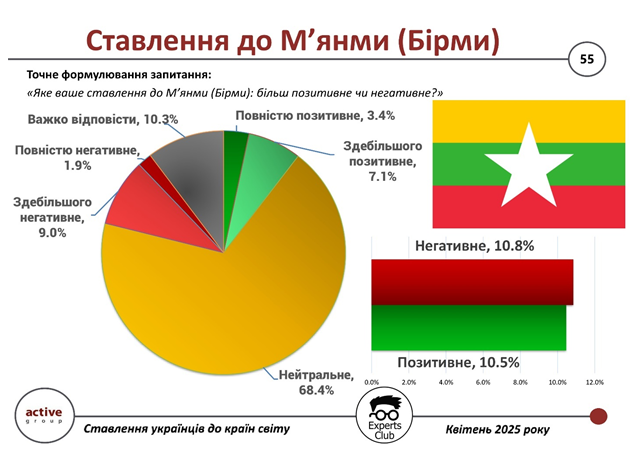
A positive attitude toward this Asian country was expressed by 10.5% of respondents, of whom 7.1% said they were “mostly positive” and 3.4% said they were “completely positive.” A total of 10.8% of respondents have a negative attitude, with 9.0% saying they have a “mostly negative” attitude and 1.9% saying they have a “completely negative” attitude. Another 10.3% of respondents were unable to determine their position.
“The prevailing neutrality towards Myanmar is due to the low level of awareness among Ukrainians about this country. However, the fact that positive and negative assessments are almost equal indicates the absence of a stable image,” said Oleksandr Pozniy, co-founder of Active Group.
Thus, Ukrainians’ attitude toward Myanmar remains mostly neutral. However, positive and negative assessments are now equal, indicating open potential for shaping the country’s image in Ukrainian society.
The presentation of the study is available at the link.
ACTIVE GROUP, DIPLOMACY, EXPERTS CLUB, Pozniy, SOCIOLOGY, URAKIN
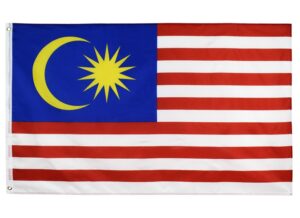
According to the results of a survey conducted by Active Group in cooperation with the Experts Club think tank, most Ukrainians have a neutral attitude towards Malaysia — 69.0% of respondents chose this option.
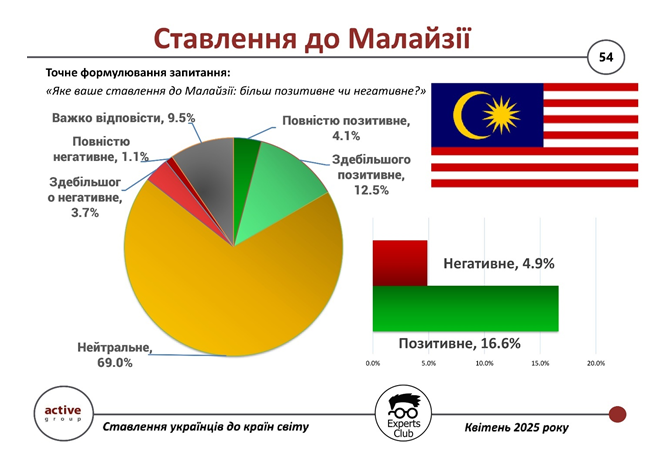
A positive attitude was expressed by 16.6% of respondents: 12.5% chose the answer “mostly positive,” and another 4.1% — “completely positive.” In turn, 4.9% of Ukrainians expressed a negative attitude, of which 3.7% said “mostly negative” and 1.1% said “completely negative.” Another 9.5% of respondents were unable to decide on an answer.
“Malaysia remains a relatively unknown country for Ukrainians, which is why neutral attitudes prevail. However, we see that positive assessments are three times higher than negative ones, which indicates a positive image of the country in the minds of Ukrainians,” comments Maksim Urakin, candidate of economic sciences and founder of the Experts Club analytical center.
Ukrainians are mostly neutral about Malaysia, but among those who have a clear idea about the country, positive assessments are three times higher than negative ones. This indicates a friendly background for the development of intergovernmental relations and tourist interest.
The presentation of the study is available at the link.
ACTIVE GROUP, DIPLOMACY, EXPERTS CLUB, Pozniy, SOCIOLOGY, URAKIN
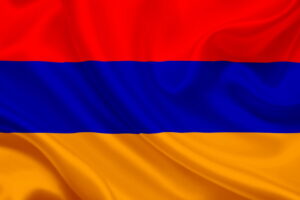
A nationwide sociological survey conducted by Active Group and the Experts Club analytical center in April 2025 examined Ukrainians’ public attitude towards Armenia. The results indicate a moderately positive perception of the country.
38.3% of respondents expressed a positive attitude toward Armenia: of these, 29.9% were mostly positive, and 8.4% were completely positive. At the same time, 49.0% of Ukrainians expressed a neutral position toward the country. Only 7.9% of respondents have a negative attitude: 7.3% are mostly negative, and 0.6% are completely negative. Another 4.9% were unable to give a definite answer.
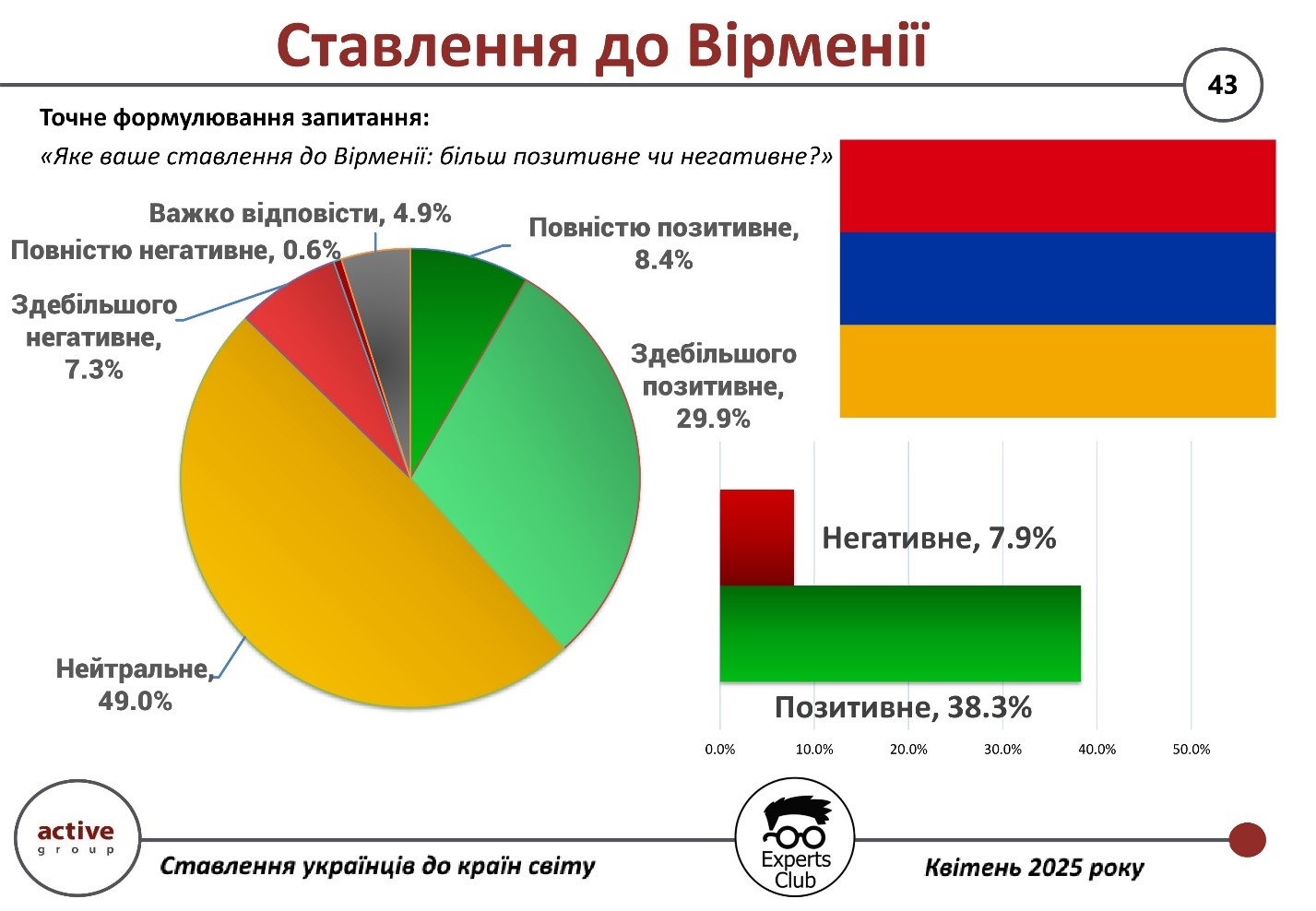
“Ukrainians’ attitude towards Armenia shows a tendency towards neutrality, which indicates that emotional ties remain limited,” commented Maksim Urakin, PhD in Economics and founder of the Experts Club information and analytical center.
The presentation of the study is available at the link.
ACTIVE GROUP, DIPLOMACY, EXPERTS CLUB, Pozniy, SOCIOLOGY, URAKIN
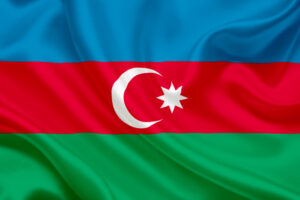
According to the results of a nationwide survey conducted by Active Group in collaboration with the Experts Club think tank in April 2025, most Ukrainians have a positive or neutral attitude towards Azerbaijan.
Thus, 42.4% of respondents expressed a positive attitude towards the country, of which 33.6% were mostly positive and 8.8% were completely positive. A neutral attitude was chosen by 45.4% of respondents. Only 7.7% of Ukrainians expressed a negative opinion: 6.9% were mostly negative, and 0.7% were completely negative. Another 4.5% were undecided.
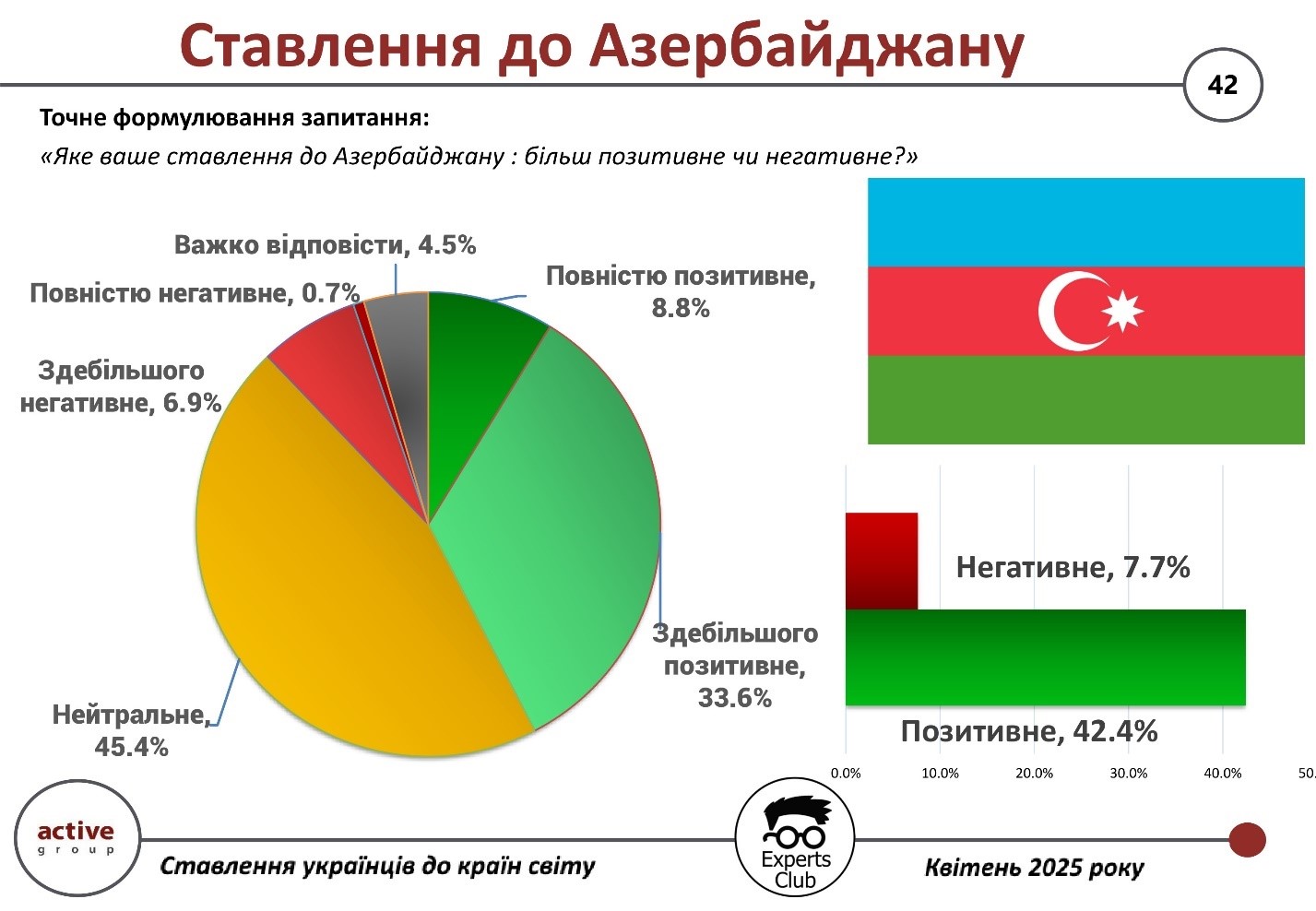
“Azerbaijan is perceived quite positively by Ukrainians, which is the result of both historical contacts and current support in the international arena. At the same time, the high level of neutrality indicates the absence of deeper emotional attachment,” said Maksim Urakin, PhD in Economics and founder of the Experts Club information and analytical center.
Ukrainians generally have a positive or neutral attitude toward Azerbaijan, while the percentage of negative assessments is quite low.
The presentation of the study is available at the link.
ACTIVE GROUP, DIPLOMACY, EXPERTS CLUB, Pozniy, SOCIOLOGY, URAKIN
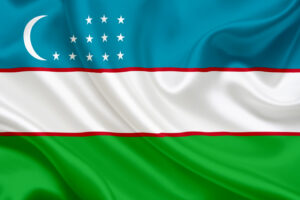
Most Ukrainians do not have a strong opinion about Uzbekistan, according to the results of a nationwide sociological survey conducted by Active Group in collaboration with the Experts Club analytical center in April 2025.
According to the survey, 63.4% of respondents chose a neutral position towards this country. 21.7% of Ukrainians are positively disposed, including 16.3% who are mostly positive and 5.4% who are completely positive. At the same time, 9.3% of respondents have a negative attitude: 7.9% are mostly negative, and 1.5% are completely negative. Another 5.6% of Ukrainians were unable to decide on an answer.
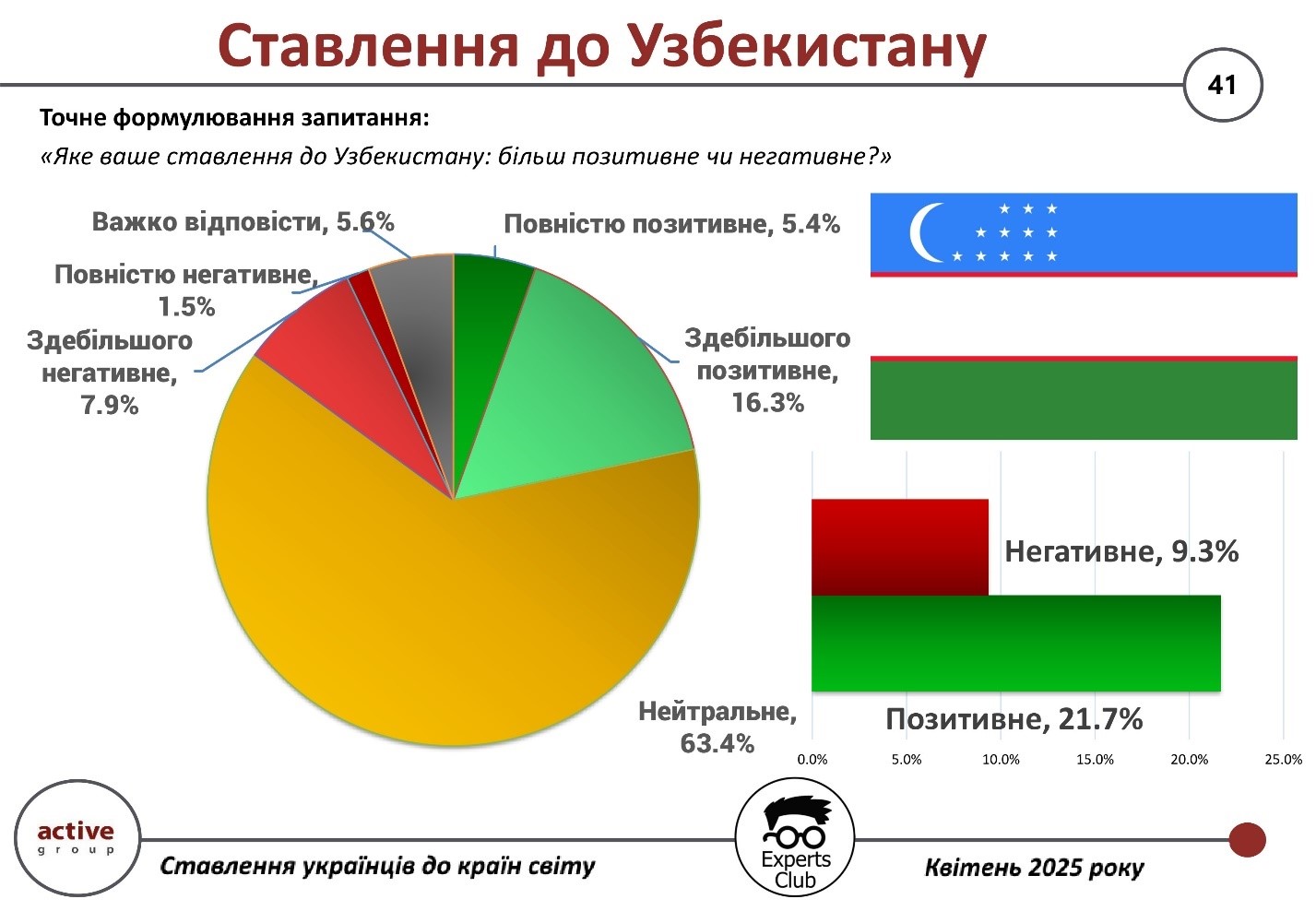
“Ukrainians mostly perceive Uzbekistan without strong emotions, which is typical for countries with which there are no close political or informational ties. At the same time, part of the population sees positive aspects in interaction with this country,” notes Maksim Urakin, candidate of economic sciences and founder of the Experts Club information and analytical center.
The presentation of the study is available at the link.
ACTIVE GROUP, DIPLOMACY, EXPERTS CLUB, Pozniy, SOCIOLOGY, URAKIN
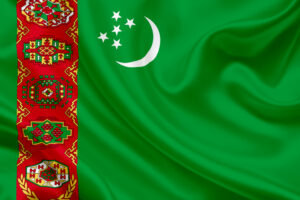
Ukrainians demonstrate a restrained and divided attitude towards Turkmenistan. This is evidenced by the results of a nationwide sociological survey conducted by Active Group in cooperation with the Experts Club analytical center in April 2025.
According to the survey, 61.3% of Ukrainians said they had a neutral attitude toward this Central Asian country. Those with a positive attitude (16.3%) and a negative attitude (16.4%) were almost equally divided. In particular, 10.8% of respondents consider it mostly positive, and 5.4% consider it completely positive. On the other hand, 13.3% of respondents expressed a mostly negative attitude, and 3.2% — completely negative.

Another 6% were unable to give a definite answer.
“Attitudes toward Turkmenistan in Ukraine are in a ‘gray zone’ — citizens generally do not have deep knowledge about this country. That is why we are seeing such a high level of neutrality and very limited emotional polarization,” commented Maksim Urakin, founder of the Experts Club analytical center.
The presentation of the study is available at the link.
ACTIVE GROUP, DIPLOMACY, EXPERTS CLUB, Pozniy, SOCIOLOGY, URAKIN